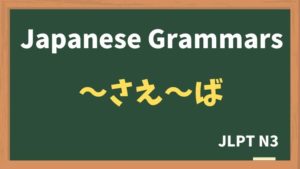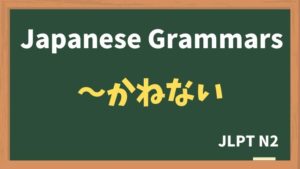
Explanation:〜というものではない
fa-check-circleMeaning
"いつも〜とはいえない"
"not always / not necessarily the case that"
Used to indicate that something is not necessarily true or valid under all conditions, even though it may seem that way. It often conveys the idea that something doesn't always go as expected or assumed. This phrase is used to gently refute or clarify assumptions or generalizations.
fa-check-circleForm
V(plain form)+ というものではない
イA(plain form)+ というものではない
ナAだ / ではない + というものではない
Nだ / ではない + というものではない
fa-check-circlePoints
- Not Always True: "〜というものではない" expresses that something is not universally or absolutely true, challenging a generalization.
- Subtle Refutation: It is often used to counter an assumption without being too forceful.
- Common in Explanations: This phrase is frequently used when giving advice or explaining that there's more nuance to a situation.
fa-check-circleJLPT Level
N2
Sample sentenes
外国語はただ、単語と文法を覚えれば話せるようになるというものではない。
Foreign languages are not something you can speak just by memorizing words and grammar.
レポートはただ提出すればいいというものではないよ。
A report is not something you just submit and that's it.
車は速ければいいというものではない。
A car is not necessarily good just because it's fast.
有名な大学を出た人が優秀だというものではない。
People who graduate from famous universities are not necessarily excellent.
商品は安ければいいというものではない。
Products are not necessarily good just because they are cheap.
Vocabulary
| Japanese |
English | |
| 優秀 | ゆうしゅう | excellent / capable |






